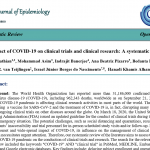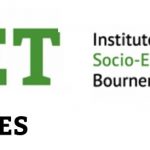 In this blog post, Dr Fiona Coward explores the profound challenges faced in establishing a transformative research agenda when you lose two seasons of fieldwork, but reminds us of the importance of undertaking activities which are energising and inspiring. On behalf of the IMSET team, she also invites greater collaboration to accelerate our research contribution as we look towards the UN Climate Change Conference (COP26) later this year.
In this blog post, Dr Fiona Coward explores the profound challenges faced in establishing a transformative research agenda when you lose two seasons of fieldwork, but reminds us of the importance of undertaking activities which are energising and inspiring. On behalf of the IMSET team, she also invites greater collaboration to accelerate our research contribution as we look towards the UN Climate Change Conference (COP26) later this year.
“Well, what a time to pick to launch a research institute! Back in early 2020, we were very excited to have recruited four great new colleagues to the brand new Institute for the Modelling of Socio-Environmental Transitions (IMSET) and anticipated great things… Little did we know. A year later, still in lockdown, we’ve learned a few things about doing research in the time of COVID. How do you do research in lockdown? As many have found, doing anything in lockdown can be tricky. The stress of life under lockdown during a global pandemic is enough to deal with on its own, and of course those of us with caring responsibilities have had other pressures. Add that to the extra time consumed by the frantic shift to online learning – the need to record and caption lectures and plan engaging interactive virtual sessions in lieu of face to face seminars, the additional time spent supporting struggling students… For many of us, research had to take a backseat simply because there were only 24 hours in a day and we were exhausted.
There are more practical problems, too: some research simply can’t get done in lockdown. Computer modelling can in theory be done from home… but only if you have the data. Producing new data, however, is … well, tricky. To generate entirely new data on global ecology and human behaviour, there’s no getting around the fact that you need to get out around the globe. It’s impossible to understand past patterns of sea level rise in northern Vietnam without going out there and logging the coordinates of sea notches on the ground; likewise, understanding past environments around the long-drowned continent of Beringia which once connected eastern Russia and north-western America can’t be done without fieldwork to collect samples of ancient plants and animal species. And without access to labs and specialist equipment, it’s impossible to analyse samples and data collected previously. We valiantly battled this one: IMSET’s postdoc was faintly embarrassed to have a new fridge delivered to her house at the start of lockdown, worried she’d be accused of stockpiling food rather than needing space to keep temperature-sensitive samples that could – with difficulty – be studied at home. OK, well fieldwork could wait, yes? Well, no, not really … much of IMSET’s fieldwork is highly seasonal in nature. For fairly obvious reasons, it’s quite difficult to collect ecological samples from Alaska during the northern hemisphere’s winter. Likewise, tramping around Vietnam or Jordan in the heat of summer is definitely best avoided. So when the window of opportunity for one year expires, that’s it until the following year …. We assumed. Only to find ourselves still in lockdown a full year later: two field seasons down. Even with the vaccination programme rolling out relatively swiftly in the UK, travel to other countries will remain difficult; where vaccination rates are slower than the UK, ethically it will not be possible even for vaccinated British people to travel there and work with local teams for extended periods. Similar problems are faced by researchers in any field where data collection is time-sensitive. For those of us lucky enough to be on permanent contracts this is a blow; without data, associated schedules of processing and analysis, writing up, publications, dissemination and other impact activity have to remain on hold., pushed back indefinitely. For those on fixed term contracts – PGRs and post-doctoral researchers – it’s a massive problem. Extensions to funding from UKRI bodies seem unlikely, but future employment and careers hang on presentations, publications, collaborations. It remains unclear how these issues will be accounted for, going forward.
Well, then perhaps we could use the time instead to plan future research projects, develop grant proposals? Well, maybe … The funding landscape changed dramatically during the pandemic, with available funding shunted towards COVID-related research. While to a certain extent that’s understandable, we do also need to keep focus on longer-term challenges – climate change, for example. That’s not going away, global pandemic or no! Grant proposals already under way slowed as we and our collaborators dealt with all the additional demands on our time and thinking; some proposals just couldn’t be progressed because they relied on pilot studies, originally planned for 2020, that had been put on hold; RKE, struggling valiantly with a raft of short-term COVID related projects with extremely short lead times, understandably had less time for support; uncertainties over HE funding in the short and medium term prompted more careful scrutiny of prospective bids, and put the kibosh on some which had been years in development.
Grants already submitted now look out of date as they failed to foresee the coming global pandemic; ones being submitted now need careful consideration of the ways in which they can be adapted or modified in the event of ongoing global or local lockdowns and COVID mitigation measures. Reviewing and decisions about outcomes either way is also taking longer, as everyone deals with the same problems. The funding landscape of the future remains unclear, but post-Brexit and in the wake (hopefully!) of the pandemic ongoing economic concerns forcing difficult decisions (witness the recent withdrawal of the ODA money from already allocated projects!), we can expect big changes.
The past year has been a difficult one for many. Time for research was squeezed or simply vanished as we tried to get our heads around phonics (yes – teachers are saints); remain sane as we watched the death count grow on a daily basis; worry about our loved ones and wonder when we might get to see them again. And yet research remains important, even – dare I say it – fun. Energising. One thing I have learned is that just as the best response to feeling run down and exhausted is – counterintuitively – to do some exercise, the best response to despair in the face of the impossibility – surely? – of research, is to dive back in. Finding it difficult to think deeply about anything right now? Time-limited? (I know I’m both!) One answer might be to create short stints of time in the madness to just chat about your research interests. Maybe it will, ultimately, lead to a formal project, or collaboration, or grant proposal …. And maybe it won’t, but perhaps that’s OK. It will kickstart your grey matter and – dare I say it – give you a chance to think about something other than the day-to-day grind of life in a pandemic, to chat with friendly colleagues facing the same problems, and to explore research and fusion-related questions, issues and themes without any pressure. OK, so research in the time of COVID is difficult – but it’s difficult for everyone. It’s not just you, promise. So let’s work together to improve things. Remember when research was fun, not just another chore you had to squeeze into your overstuffed day? Let’s bring a little of that fun back again.
Part of that joy – and growth from the adversity we encountered – comes in seeking out new collaborations and, with it, directions for future research, impact and engagement. Not least as the UK looks towards hosting COP26 and considering the impact of climate change once again. With that in mind, we would like to invite colleagues across BU and beyond to work with us. IMSET has a series of events in the pipeline which all are welcome to attend, and if you can’t make them then just drop us a line and we can catch up with a virtual coffee and chat. We’re interested in all things sustainability, from systems modelling to working with local communities across the globe to understand how people interact with their environments and to develop resilience and sustainability at the grass roots. If you work in any area relating to sustainability, human/environment relations, community engagement or beyond, drop us a line! Contact the core team, or email IMSET@bournemouth.ac.uk.
The past year has taught a lot – one thing it’s made abundantly clear is the power and importance of research. Not all of us can directly work on preventing the next global pandemic, but COVID has also sparked a lively debate about the impact of human interactions with other animals and with the environment more generally; probably many of us can contribute in some way to this wider picture, so if you’re interested, get in touch and let’s help each other get through!
 COVID-19 affects research into other diseases
COVID-19 affects research into other diseases Virtual Coffee with IMSET
Virtual Coffee with IMSET IMSET Seminar – Human adaptation and coastal evolution in northern Vietnam
IMSET Seminar – Human adaptation and coastal evolution in northern Vietnam










 Dr. Chloe Casey on Sky News
Dr. Chloe Casey on Sky News Final Bournemouth University publication of 2025
Final Bournemouth University publication of 2025 On Christmas Day in the Morning…
On Christmas Day in the Morning… New Nepal scoping review on maternal & neonatal health
New Nepal scoping review on maternal & neonatal health ECR Funding Open Call: Research Culture & Community Grant – Application Deadline Friday 12 December
ECR Funding Open Call: Research Culture & Community Grant – Application Deadline Friday 12 December MSCA Postdoctoral Fellowships 2025 Call
MSCA Postdoctoral Fellowships 2025 Call ERC Advanced Grant 2025 Webinar
ERC Advanced Grant 2025 Webinar Horizon Europe Work Programme 2025 Published
Horizon Europe Work Programme 2025 Published Horizon Europe 2025 Work Programme pre-Published
Horizon Europe 2025 Work Programme pre-Published Update on UKRO services
Update on UKRO services European research project exploring use of ‘virtual twins’ to better manage metabolic associated fatty liver disease
European research project exploring use of ‘virtual twins’ to better manage metabolic associated fatty liver disease